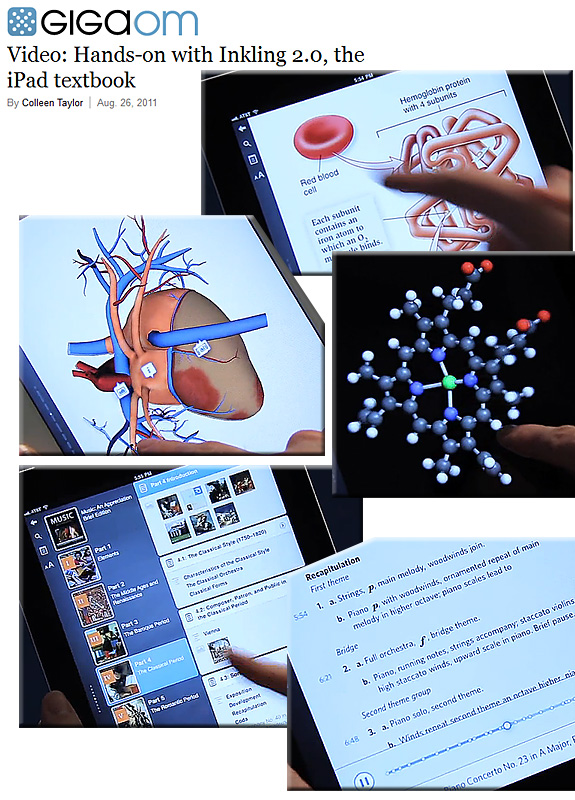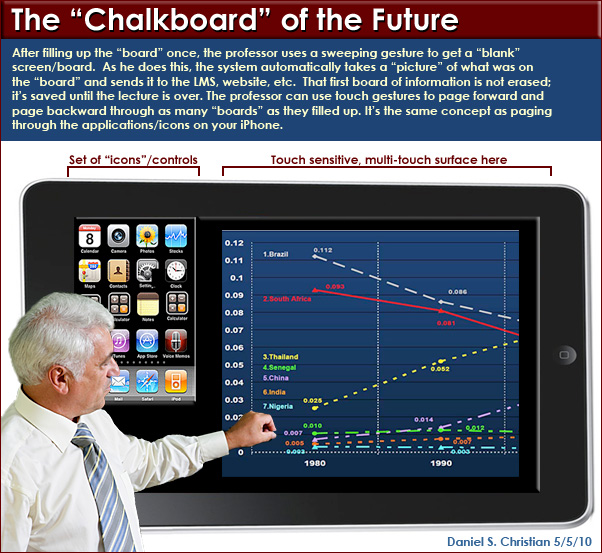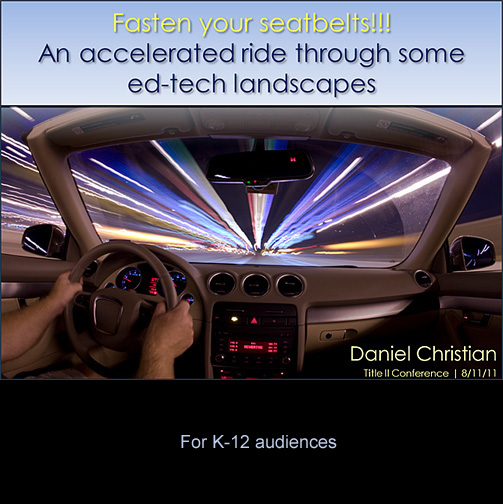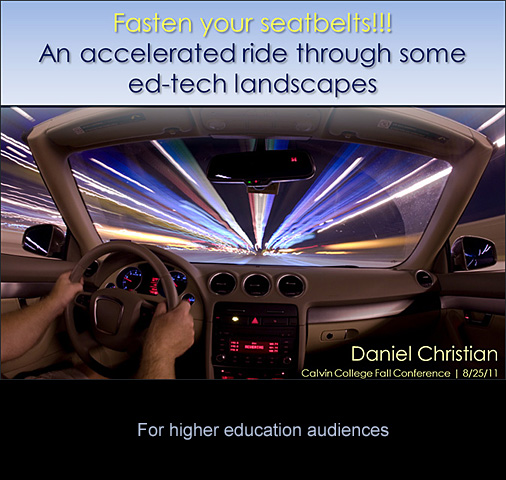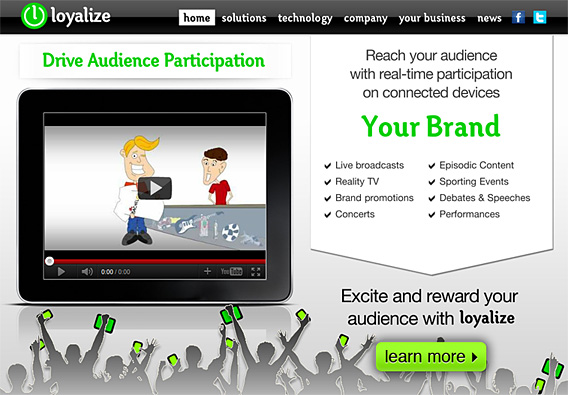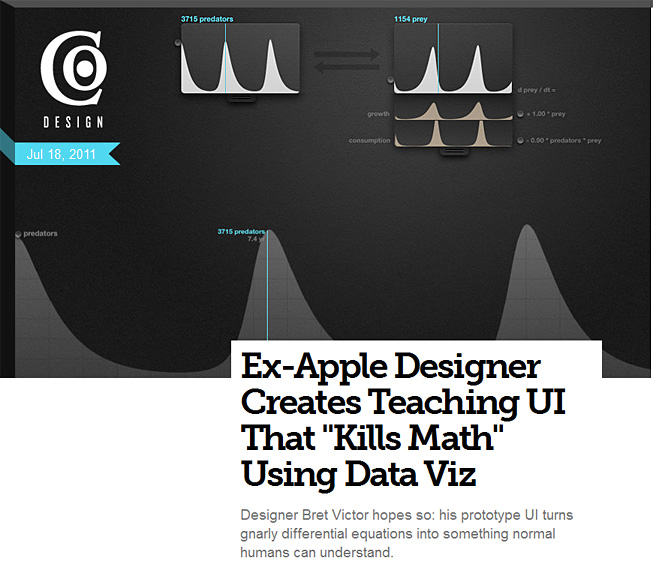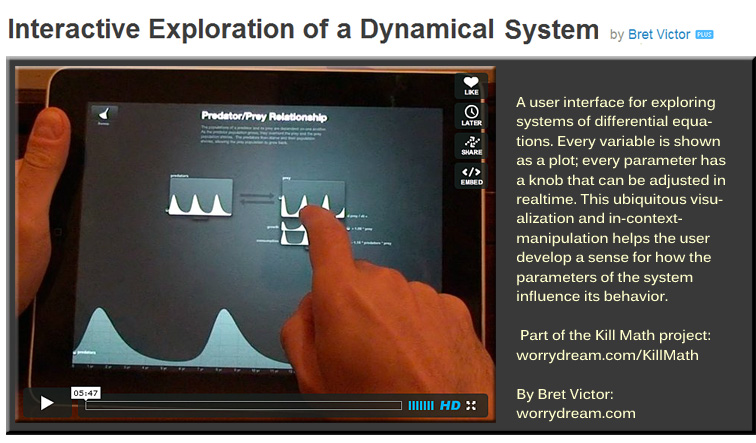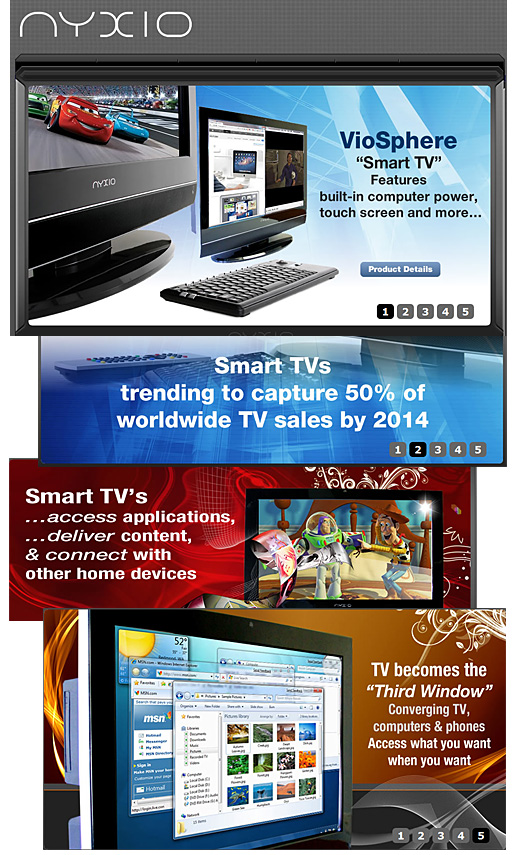Video: Hands-on with Inkling 2.0, the iPad textbook — from gigaom.com by Colleen Taylor; my thanks go out to Mr. Johnny Ansari for this resource
A screenshot from GigaOM’s video demo of Inkling 2.0
Excerpt:
This week, digital publishing startup Inkling debuted the 2.0 version of its software, which provides interactive, digital versions of college textbooks for the iPad.
The San Francisco-based startup is just down the street from GigaOM’s office, so I headed on over to Inkling headquarters on Thursday to get an in-person demo from the company’s Founder and CEO Matt MacInnis. In short: It’s so awesome it actually makes me want to buy college textbooks again, just to play with the app some more.
From DSC:
Why can’t these materials from publishers come right into an 8′ x 6′ “interactive whiteboard” (for lack of a better term) so that the professor can annotate/manipulate them in front of the classroom?
See:
and here










